friday 5 | Q & A on the chinese internet ::
Friday, August 7th, 2009:: with hundreds of millions of Chinese Internet users these days, if you are a Chinese netizen and have a question about something, there’s a good chance that someone out there knows the answer. But how do you connect with them? Through “ask” sites, of course. Listed below are ask sites that range from broad, general interest information to specialized topics, from the intelligence of crowds to authenticated experts, and from free for the asking to paid answers-for-hire. Nothing guarantees the quality of any of the answers you receive, but if you’re a savvy Internet user, you already double-check the accuracy of anything you find online.
general knowledge on baidu knowledge ::
As China’s leading search engine, any additional features that Baidu adds to its core compentency get an automatic boost. This can be a good and a bad thing. Baidu Knowledge is an excellent resource for general knowledge questions. The website operates on a points system. Anyone who posts a question on Baidu Knowledge needs to ante up (fortunately, registration automatically gives you a chunk of credits), and you can attract a better quality of responses by promising a larger bonus for acceptable answers. If you don’t feel confident to judge which answer is best, a vote can be called once time expires so that netizens can decide for you. The system works best for general knowledge questions, particularly those for which netizens can simply search the Internet for an answer and copy over the results. More specialized questions, and ones that require offline data, are not as successful. It’s also great for language issues: obscure chengyu, dialect expressions, and filthy slang all attract decent responses. But even an innocent ask-answer website needs a dose of celebrity glamor: The Baidu Knowledge blog recently launched a feature called “what the stars want to know“. In the installment linked here, Huang Yali, a 2005 Super Girl star, asked a question: “I am afraid of snakes, so what I am going to do when I encounter a snake?” There are 97 answers to this question so far. Real life credentials are an important factor for people to decide whether to take one particular answer seriously. Baidu has a expert board, which is composed primarily of real-life professionals in certain fields. Brands have taken advantage of the opportunity: for example, one user was having a hard time choosing between two smart phones, the HTC Touch Viva and the Moto A3100. Rola, a Baidu-accredited expert who is also a Motorola marketer, offered her opinion: after listing all the fancy features about the A3100, Rola only mentioned the HTC as being “not as good in terms of quality and basic functionality, and not as practical as Motorola, whose user experience is more guaranteed”. Sohu’s Sogou search engine has a similar Q&A service, Ask, which also features an expert board. Users who apply to be experts must answer two questions per week to maintain their status. Fighting spam answers is a major challenge for most Q&A websites. To solve this problem, Baidu offers prizes to users who report spammers. Currently, the user who reports the most “worms” in a month will win a USB flash disk.
other portals ::
Although they’re not as popular or well-known as Baidu Knowledge (partly because BK results show up so high in Baidu searches), other portals and search engines offer their own approaches to the Q&A game. Tencent’s Soso search engine has a Q&A feature called Wenwen, which is categorized, with QQ-related questions pretty near the top. Wenwen fosters community involvement through a typical rankings system, but also through a “Stars of Wenwen” feature: So far, 26 separate answerers have been voted to become the subject of extensive profiles, complete with photos, mini-bios, and space for other users to post their impressions. The Stars are drawn from Wenwen’s registered users, who have their own SNS-like channel. One cute feature Wenwen has is a keyword cloud that shows what words and phrases turn up most frequently in questions. Currently the top selections range from interesting curiosities (“how did the ancients brush their teeth?”) to net-slang (思密达, a Chinese phonetic transcription of a Korean sentence-ending word that’s used in post-90s net-speak) to pure weirdness (Panda Blood, anyone?) Sina’s iAsk search engine calls its Q&A feature “Knowledge Person” (知识人), and promotes it as “a billion netizens helping you with your problems.” It too has an expert channel for when you’re not satisfied with answers from ordinary people. There’s a section for mobile phones, questions rated by rank and by the number of votes received. By voting on Sina iAsk the user can also collect “points” and win prizes. Marginally related to the Knowledge Person service is Sina’s iAsk Resource Sharing – think of it as the answers you receive when you ask for specific books, music, or other media. It’s supposed to be more than just a den of pirated content, of course, but it’s a fairly novel way for individual Sina users to share their wealth of information with other netizens.
harnessing the power of forums on qihoo ::
Qihoo, a website originally known for its anti-virus tool “Safeguard 360″, now bills itself as “the Q&A website with the most complete answers.” Its Q&A system is based on its blog and forum searching service. Questions are not answered by netizens directly. Instead, the system harnesses forum content to return blog entries and forum posts according to their relevance to the questions. The site’s front page features a scrolling list of questions asked just seconds prior: How do you use a mobile phone battery to make it last as long as possible? Is it true that if you pluck one grey hair, ten more will grow back? What are the priciest luxury brands in the world? The usefulness of this approach varies. When it works, you turn up tons of relevant forum posts that are talking about precisely what you’re looking for; in less fortunate cases, the experience is not much different from looking for answers through a typical search engines like Google or Baidu (although Qihoo does narrow its search range to forums, so you’re not paging through government boilerplate). To amend this weakness and harness the wisdom of the Internet crowds, Qihoo has another section, a “prize-for-answer” community, which is similar to Baidu Knowledge. However, Qihoo does Baidu one better with its “PK” (head to head) feature, which takes place in a “voting bar“. A questioner who has received several different answers to a own question, but who is uncertain which one is better (or who wants to know what the silent majority thinks) can put it to a vote. Unlike Baidu, the votes are featured prominently on the site. For example, a high-school student failed this year’s college entrance exam and wants to know if he try again next year, look for a job, or go to a vocational college. The results indicate that most users want him to prepare for another year and try again. Qihoo has also extended its question-answer service to mobile handset users, who can send their questions through wap.qihoo.com. Some individual discussion forums have their own Q&A sites. Tianya has a Q&A function which its membership can participate in. Oddly, it does not seem to be filtered as much as more general Q&A sites: there is quite a substantial amount of sex-related searching going on in the recent search listings. Questions are categorized, sometimes fairly specifically: clicking on “Study Abroad 留学“, for example, leads to a whole subsection about moving abroad to study including a post about how much it would cost to study in Britain.
specialty sites ::
Maybe you have a more specific question and want to seek out people knowledgeable in that particular area. There are Q&A sites for all kinds of obscure interests. OK Wave is a direct import from Japan, where it is the biggest question-answer search engine. Its Chinese version became active at the end of July, 2009. The questions that are asked on OK Wave seem to be Japan influenced. How does one learn Japanese in a new Japanese speaking company, for example? From the “hot tag words” list — study abroad, visa, travel, Japan, employment, food, spa, cherry blossoms, university — the Japanese focus is fairly obvious. OK Wave has rudimentary SNS functionality in the form of “My Spaces,” but the registration process is quite lengthy. How about Law? Don’t want to put your technical legal question to the unwashed masses. Ask a Lawyer is part of the comprehensive law site Guangdong Lawyer. Asking a question involves entering a specific question, wait for an answer, and then rating it. The Ask a Lawyer Q&A site says it deals with marriage law, criminal cases, employment law, and traffic accidents. Many questions on the front page involve accidents and monetary compensation. Infant-oriented website Cradle, which is all about mothers, pregnancy and taking care of newborns, has an affiliated search site, Ask Cradle, which separates the searches into categories such as weight loss (for mothers), nursing the baby, and children’s sex education, among others. It also lets users ask questions according to the age of the infant. A typical question asked is “Does my baby move too much?“, which is filed under the One Year Old section. Are you a practicing Muslim who wants to know how you ought to interact with your non-believing neighbors? The Gansu-based Islam Q&A, part of Window on Islam, features a number of scholars (阿訇) who answer questions from netizens about various Islam-related issues. Questions are generally visible to the public, but they can be made private, too. Given the nature of religion in contemporary China, the scary-looking front-page should come as no surprise: rather than a welcome screen or a list of topics, there’s a ten point list of content that’s not to be submitted as a question, with citations to the State Secrets Law and various digital information regulations.
paid sites ::
Sometimes your query is a little more complicated. Call it a “task” rather than an “ask.” Well, the Chinese Internet has that covered, too. Witkey (威客) is the name for a system by which individuals or companies seeking to accomplish particular tasks can draw upon the talent of Internet users. At witkey sites, questions are posted (often for a fee), and site members contribute answers, for which they are compensated if their answer is chosen. Remuneration varies. On Witkey (威客网), the top recommended task seeks a slogan for China’s Sports Lottery and offers 10,000 yuan to the winner. Most of the other featured tasks are creative in nature: advertising slogans and logos, mostly. The site has a SNS-like feature where members can post their skills and interact with colleagues and potential clients. At VikeCN (威客中国) features a wider selection of lower-paying design tasks alongside online drudgery: “300 RMB: 0.5 yuan per forum post; the more you post, the more you earn” reads one, which is apparently recruiting 50-cent gang members to astroturf for a medical company. You can also earn cash by clicking on Google adwords. Not all witkey sites have the word “witkey” in their name. Zhu Bajie, named after the Journey to the West character, is just one of the several dozen other witkey sites out there. It’s got a busy design that’s reminiscent of human resources websites (which tend to be big advertisers on witkey-style websites). Tasks range from the technical – 2,000 RMB for developing a JSP-based website, which as of this writing has 28 applications and 8 submissions; to the whimsical – 100 RMB for lyrics to a corporate theme song, which currently has 65 applications and 28 submissions; to the sketchy – 500 RMB for an original, 40,000-character master’s thesis in computer science. For more tasks, see the extensive list on the Witkey website, which indexes a whole bunch of general ask sites and more specific witkey task sites.
// AjS
[Friday 5 is the product of my work at Edelman Digital (China). Link here for the full Friday 5 archive. If you'd like to be added to the bilingual (English & Chinese) Friday 5 email distribution list, please send me an email at: adam DOT schokora AT edelman DOT com.]
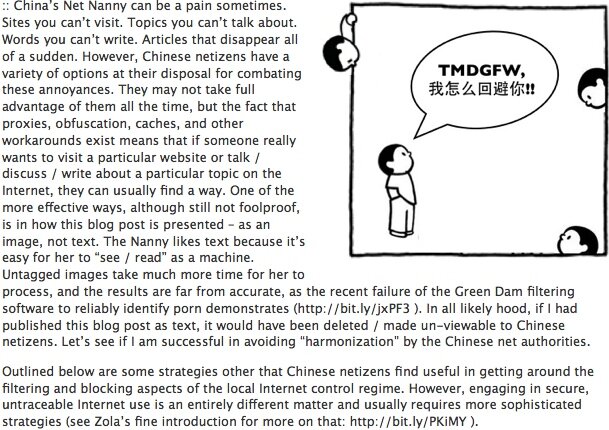
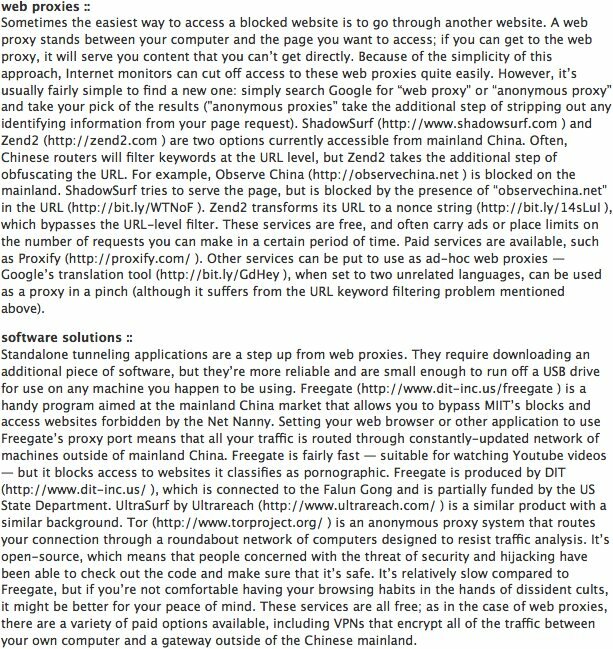
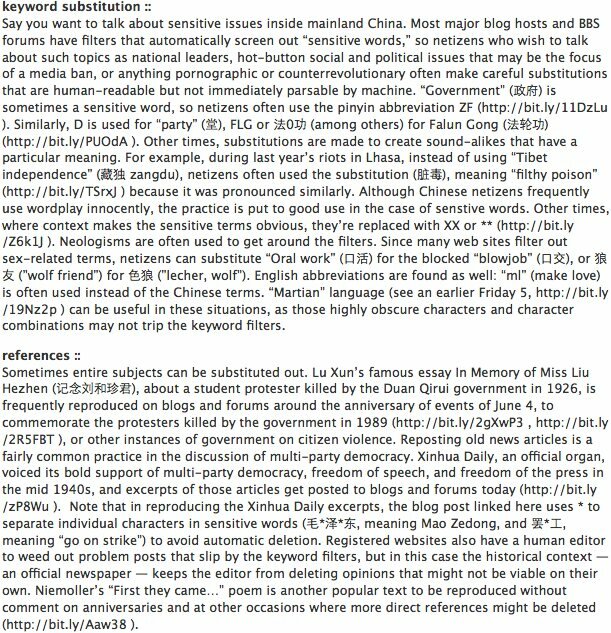

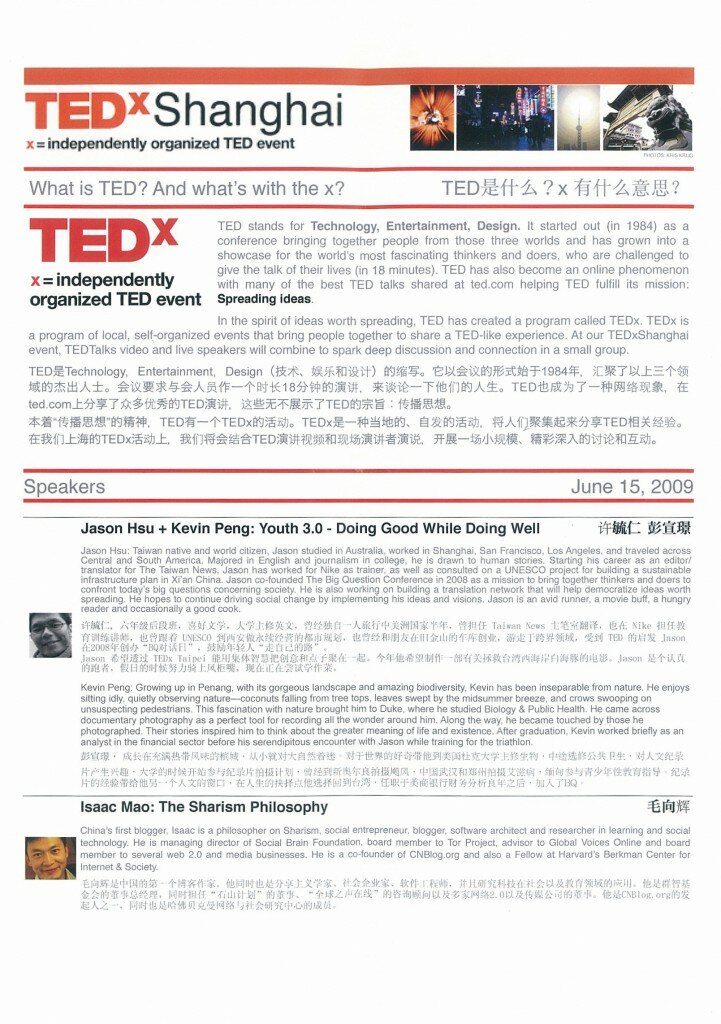

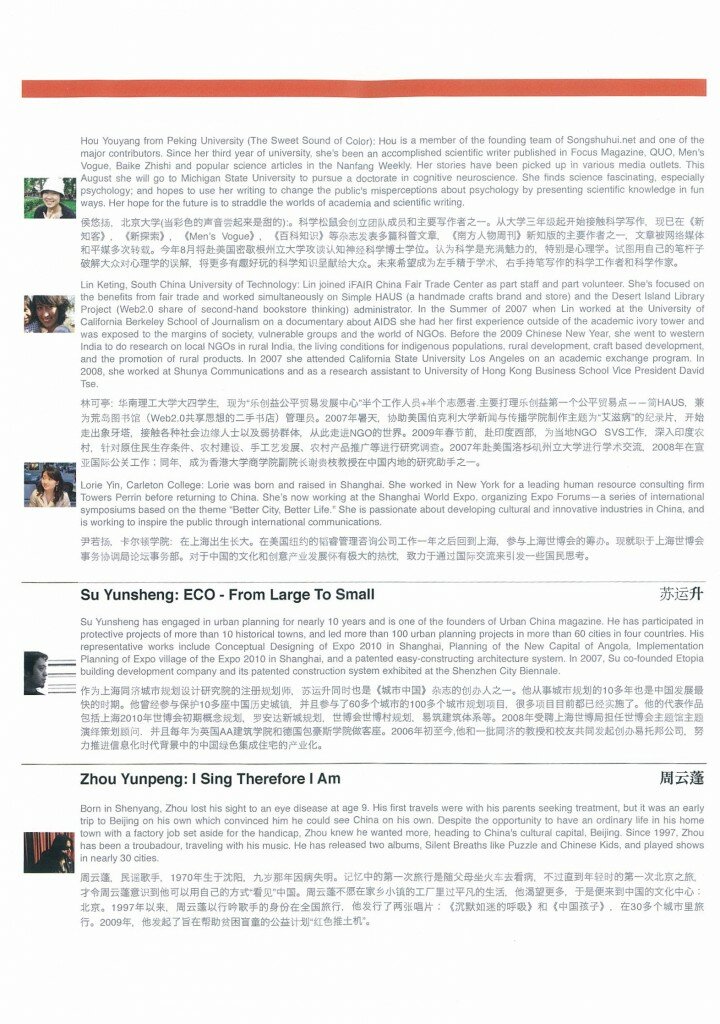

 :: the topic for this week’s Friday 5 comes from my colleague (and former United States Ambassador to Singapore, 2001 – 05) Frank Lavin, based in Edelman’s Hong Kong office. Thanks Frank. If any readers have any ideas for future Friday 5s, please send through.
:: the topic for this week’s Friday 5 comes from my colleague (and former United States Ambassador to Singapore, 2001 – 05) Frank Lavin, based in Edelman’s Hong Kong office. Thanks Frank. If any readers have any ideas for future Friday 5s, please send through.
 :: in last week’s Friday Five, I focused on
:: in last week’s Friday Five, I focused on 






























